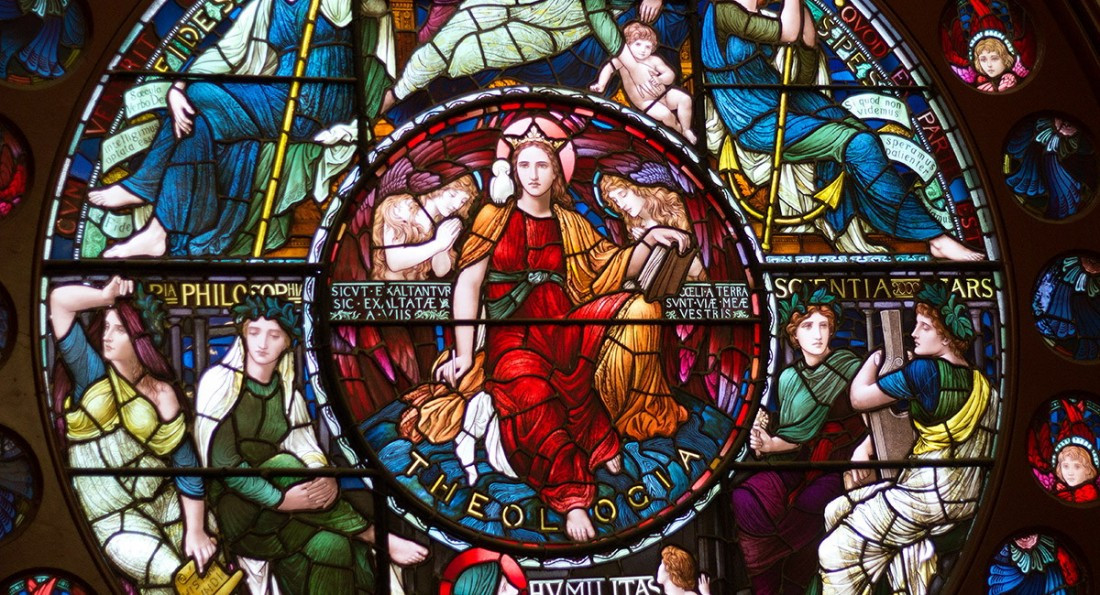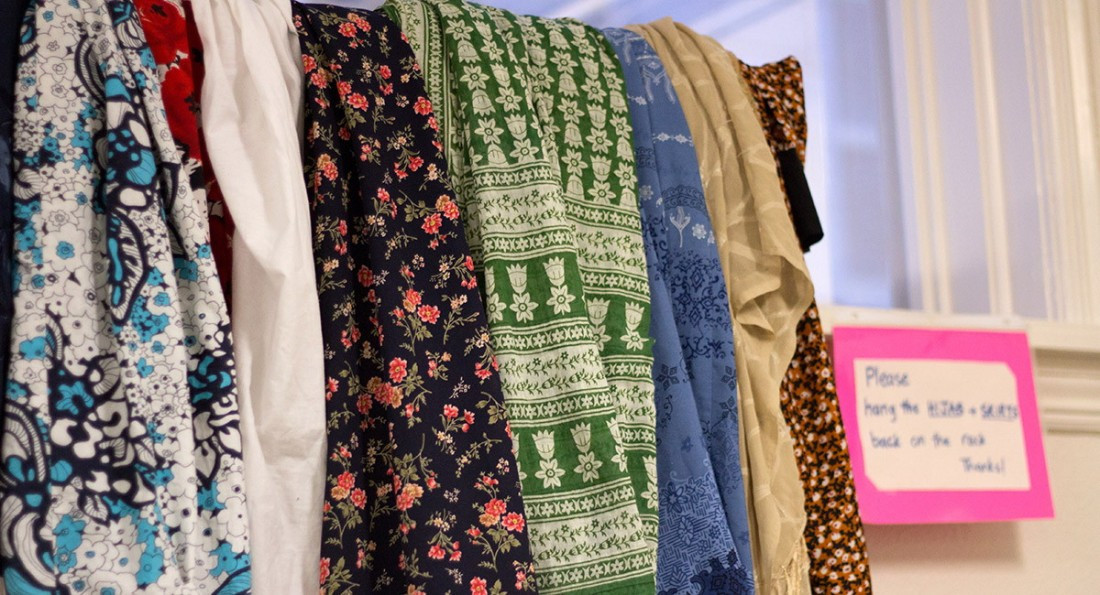All in the name of dialogue
Theologians at universities advocate for ongoing dialogue between people of different religions and those who are non-religious
Rowan Williams, the former archbishop of Canterbury, argues in his recent book, Faith in the Public Sphere, that secularism which confines religious discussions to the private sphere breeds spiritual curiosity and fundamentalism through a distrust of human experiences that cannot be categorized.
Winnipeg’s four universities have historical roots in different religious cultures, which find sometimes explicit and sometimes implicit expression today.
The University of Manitoba (UM), founded in 1877 by Anglican, Presbyterian, and Roman Catholic denominational colleges, is now a nondenominational institution.
The University of Winnipeg (UW) began in 1871 as Manitoba College, established by the Presbyterian Church, and Wesley College, which started in 1877 through the efforts of the Methodist Church. The two merged and became United College, under the auspices of the United Church in 1938, and became the University of Winnipeg in 1967.
Canadian Mennonite University (CMU) formed in 2000 as an amalgamation of Mennonite Brethren Bible College/Concord College (est. 1944), Canadian Mennonite Bible College (est. 1947), and Menno Simons College (est. 1989). CMU is the most explicit of Winnipeg’s universities in its religious outlook.
Established in 1818, College Universitaire de Saint Boniface is the oldest educational institution in Western Canada. It transitioned to a secular administration in 1969.
Theologians at the University of Winnipeg, the University of Manitoba, and Canadian Mennonite University express a concern for the privatization of religion not because they want to convince others to share their religious beliefs, but because religion and spirituality are active concerns of the public.
Karl Koop started at CMU in 2002. He is professor of History and Theology, director of the Graduate School of Theology and Ministry, and coordinator of the Biblical and Theological Studies Program.
“We relegate religion to the private sphere because we fear fundamentalism is the other option,” says Koop. “But the opposite is not fundamentalism, it’s just the opportunity to talk about it. I do not think we should ever impose religion on anyone.”
Koop sees the taboo against religious expression in the public sphere as an accidental by-product of secularism. “You should be able to talk about anything in a university setting,” he says, “We need to take atheism just as seriously here as we do theology and religion. Historically, the Enlightenment separated the private and public spheres, making religion private.”
Brad S. Gregory, in his 2012 book The Unintended Reformation argues in the final chapter that secularism in the Western research university setting excludes the truth claims of billions of people because those claims transcend the universe as real, but takes for granted the incompatible truth claims of various disciplines, without exploring these incompatibilities.
Koop says universities are beginning to recognize the value of inter-disciplinary dialogue. He reflects that CMU’s student population is diverse, comprised of Christians, Muslims, Jews, atheists, and agnostics.
“With over half the student population being non-Mennonite, and a large portion, a significant portion being non-religious, clearly, from my vantage point, we’re increasingly here serving the public in similar ways to other universities.”
Dr. Terry Hidichuk echoes Koop’s position. “We are not about converting the masses. We’re about living in dialogue.”
Hidichuk is the executive director of the United Centre for Theological Studies (UCTS) at the University of Winnipeg. He is a United Church minister who joined the UW’s board of regents as a volunteer in 2003, as representative of the United Church of Canada. When that term ended in 2010 he was appointed acting dean of the Faculty of Theology for three years. On Aug. 1, 2013, he was appointed to his current position.
“Because we’re a public institution, we’re going to continue to be in dialogue with people of other faiths and people of no faith,” Hidichuk says. “I would hope the UCTS builds on the synergies of being part of a public institution, able to have programs that are theologically based, but perhaps more inter-disciplinary.”
Dr. Chris Trott shares similar views to Koop and Hidichuk. Trott is an associate professor in the Department of Native Studies as well as Warden and Vice-Chancellor of St. John’s College, an Anglican college with a faculty of theology on the campus of the University of Manitoba, but with no formal relationship with the UM’s Department of Religion.
Trott referred to the results of a series of studies begun in 2003 that were released in 2010 under the title The spiritual life of college students: A National Study of College Students’ Search for Meaning and Purpose.
Conducted in the USA, Trott says the report closely mirrors the situation in Canada. The studies revealed most undergraduates coming into university expect they will encounter spiritual development in their first year, and by their third year they are sorely disappointed.
“My perception talking to students is that students are still searching, especially young students,” Trott says. “And because of a kind of excessive secularism at university that need is not being met at all.
“It’s not that it’s vanished, it’s that you’re not even allowed to, kind of an unspoken taboo.”
But the response is not conversion. “I personally object to and I have no time for strong-armed proselytization where people come up and grab your arm and ask if you have been saved. I would oppose that,” the professor says.
Trott expresses a concern that secularism can be expressed similarly to strong-armed fundamentalism. “I don’t think religion and secularism are opposed to one another,” he says.
“ I do not think we should ever impose religion on anyone
Karl Koop, Canadian Mennonite University
Dylon Martin, a student at the University of Winnipeg, became the de facto organizer and administrator for the Facebook page of the Winnipeg Secularists following founder Robert McGregor’s decision to play less of a prominent role in the organization.
“I think the important thing is for leaders of post-secondary institutions and leaders of public institutions to have the broad public interest as their focus, and not pander to sectarian interests,” Martin, 22, says. “There shouldn’t be a top-down religious privilege in university and certainly religious notions and biases shouldn’t limit academic freedom.”
“I actually agree that personal religious faith should not be a determinant in public discourse,” Trott says. “But I don’t agree that it can’t be part of it. If I come to social or political questions I bring to it a whole series of convictions that come from my religious faith.”
Dorothy Stephens, 54, joined the Humanists, Atheists, and Agnostics of Manitoba’s (HAAM) executive last fall and is the editor of its newsletter.
Stephens and Martin both advocate for giving students the opportunity to organize groups based around their beliefs. “People should have a right to believe and do whatever they want as long as it affects no one else,” Stephens says. “The problem lies when their beliefs and choices affect others and they want to pass public policies or allocate public funding based on them.”
Martin concurs. “Obviously, students who are coming out of different perspectives on religious issues, and subscribe to faith, they can privately organize and do their own thing,” he says. “I don’t feel religious issues have to ubiquitously be avoided.”
Koop, Hidichuk, and Trott all express the importance of universities, and theological and religious programs being open to dialogue with and receiving perspectives from the Aboriginal community in Winnipeg. CMU, the UCTS, and St. John’s College are all offering courses in this field.
“We try to live out an understanding that we are on First Nations land,” Hidichuk says. “That changes how we look at everything, but it also changes how we look at theology. The United Church along with other churches was involved in residential schools, it’s part of our heritage. It’s not something we’re doing now, we’re not about assimilation, we’re about living in dialogue with people of other faiths and other traditions.”
Published in Volume 68, Number 23 of The Uniter (March 12, 2014)








